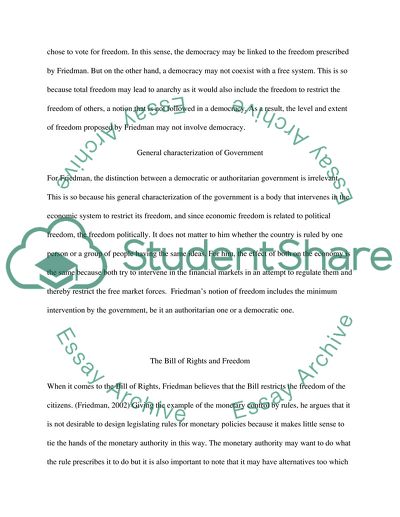Cite this document
(“The Theories of Milton Friedman Essay Example | Topics and Well Written Essays - 1000 words”, n.d.)
The Theories of Milton Friedman Essay Example | Topics and Well Written Essays - 1000 words. Retrieved from https://studentshare.org/macro-microeconomics/1570947-contemporary-theories-of-political-economy
The Theories of Milton Friedman Essay Example | Topics and Well Written Essays - 1000 words. Retrieved from https://studentshare.org/macro-microeconomics/1570947-contemporary-theories-of-political-economy
(The Theories of Milton Friedman Essay Example | Topics and Well Written Essays - 1000 Words)
The Theories of Milton Friedman Essay Example | Topics and Well Written Essays - 1000 Words. https://studentshare.org/macro-microeconomics/1570947-contemporary-theories-of-political-economy.
The Theories of Milton Friedman Essay Example | Topics and Well Written Essays - 1000 Words. https://studentshare.org/macro-microeconomics/1570947-contemporary-theories-of-political-economy.
“The Theories of Milton Friedman Essay Example | Topics and Well Written Essays - 1000 Words”, n.d. https://studentshare.org/macro-microeconomics/1570947-contemporary-theories-of-political-economy.


